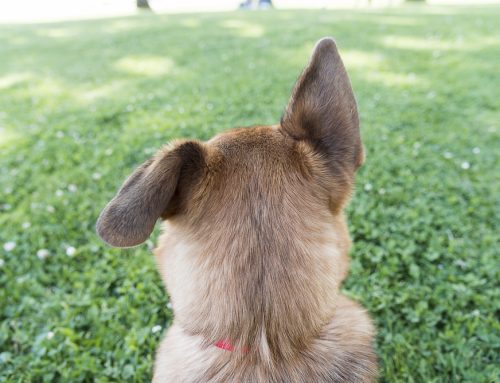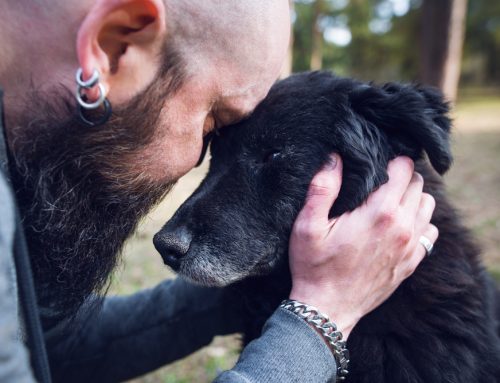Heat-related injuries such as heat exhaustion and heatstroke don’t discriminate—pets and people of all ages can succumb to the sun’s unforgiving and oppressive heat. However, senior pets are more likely to experience dangerous—potentially deadly—heat-related illnesses.
Keep your pet safe in their later years—without denying them their time in the sun—by checking out the Golden Years Veterinary Service guide to heat safety for senior pets.
Special considerations for senior pets
Your pet may have loved sunbathing in their younger years, and while a few minutes basking in the sun’s warmth can soothe a senior pet’s arthritic joints and aching muscles, prolonged outdoor exposure or physical exertion can lead to an emergency. Age-related changes in your senior pet’s physical and mental health are often to blame, and include:
- Decreased cardiovascular health — Heart disease, heart failure, and respiratory conditions reduce your pet’s ability to oxygenate tissues and cool themselves through panting.
- Obesity — Many senior pets are overweight because of reduced mobility. Extra weight can worsen cardiovascular challenges and act as an insulator that traps heat inside the body.
- Airway-related conditions — Dogs with laryngeal paralysis, collapsing trachea, or a naturally narrow trachea and nostrils, such as brachycephalic (i.e., flat-faced) breeds, experience airflow resistance and must work harder to breathe normally. And, because pets must increase their breathing rate and effort to keep cool (i.e., panting), they can succumb quickly to life-threatening heatstroke.
- Reduced water intake — Senior pets may not drink enough water because of other medical conditions (e.g., kidney or liver disease), mental health decline (i.e., cognitive dysfunction syndrome), vision loss that leaves them unable to locate their water source, or impaired mobility and pain that make reaching their bowl a struggle.
Identifying heat stress and heatstroke in senior pets
Pets don’t need triple-digit temperatures to suffer heat stress—in fact, many comfortable, mild days can pose a great risk to our grey-whiskered friends. Knowing how to recognize your dog or cat’s heat-related discomfort early allows you to protect them from life-threatening heatstroke. The following lists heatstroke signs as they progress from mild to severe:
- Excessive panting
- Drooling
- Wide-eyed or glazed expression
- Rapid heart rate
- Intense thirst
- Lethargy or restlessness
- Vomiting, which may be bloody
- Diarrhea, which may be bloody
- Abnormal gum color
- Weakness or collapse
- Unsteady gait
- Seizures
- Coma
- Death
While we recommend limiting your senior pet’s outdoor time during warm weather, we recognize that accidents can happen. If you notice early heat stress signs (i.e., panting, drooling), take your senior pet to a cooler location—ideally, indoors in air conditioning. Offer them cool—not cold—water, and allow them to rest. If possible, take your pet’s temperature every 15 minutes. If your pet is significantly distressed, wet them down with cool water and call Golden Years Veterinary Service or the nearest emergency veterinary hospital.
Chill out—protect your senior pet from heat-related injury
Keep your senior pet cool when temperatures rise with these easy-to-remember tips:
- Encourage water intake — Senior pets may need an extra incentive to drink water, so ensure access by placing water bowls throughout your home. Arthritic dogs may appreciate an elevated bowl, while finicky felines may be enticed with a water fountain. Try adding low-sodium broth to your pet’s water dish, or freeze the broth-water for ice-cube loving dogs. Other frozen treats, such as sliced watermelon or homemade yogurt “pup-sicles,” are fun ways to quench your pet’s thirst.
- Avoid unnecessary travel — We understand that refusing your pet’s begging eyes when you grab your car keys can be hard, but you should limit your senior pet’s warm-weather travel to reduce their heat stress risk. Parked cars can create a greenhouse-like environment, with interior temperatures reaching dangerous levels in as little as 10 minutes.
Additionally, some senior pets experience distress and disorientation outside their familiar environment, which can trigger a rise in body temperature. While time spent with pets is never wasted, leaving your senior pet at home in air-conditioned comfort is usually safest and kindest.
- Made in the shade — If you plan to enjoy some outside time with your senior pet, create a cool, relaxing lounge area that includes fresh water, a comfortable resting place (e.g., a low-height bed), and ample shade. Reflective mesh shade cloths come in varying sizes, and can be hung in a matter of minutes to create a shady spot. Box fans are also helpful for quickly cooling an area, and lining your pet’s bed with a cooling mat can keep them more comfortable. Don’t forget to take frequent breaks, and let your pet go inside if they want.
- Exercise indoors — No matter how much your senior dog loves their daily walk, changing their routine during the summer months is best. Try walking during the cooler early morning or late evening hours, but if the heat is still relentless, replace the walk with indoor activities. Senior-safe games include:

- Snuffle mats — Scatter your pet’s food in one of these fringed mats to encourage sniffing, or hide food in a room, and allow your dog to sniff out each piece. Sniffing provides mental enrichment and satisfaction similar to physical exercise.
- Puzzle toys — If your dog is new to food puzzles, start with low-level challenges to build their confidence. Supervise all play to prevent chewing and frustration, and help your pet if necessary, to ensure they feel successful.
- Food-stuffed hollow toys — Fill a Kong or similar toy with your pet’s food. Wet food can be used as filling, or be smeared on a textured lickable treat mat for dogs or cats. For a fun summer treat, freeze a filled Kong, or make ice cubes out of beef or chicken broth for your pet.
Understanding your senior pet’s special warm weather needs can help them beat the heat, and ensure that their golden years are their best yet. For more information on keeping your senior pet healthy and comfortable, contact Golden Years Veterinary Service.




Leave A Comment